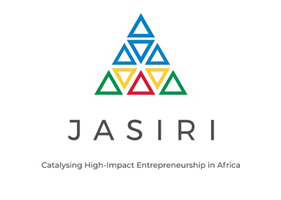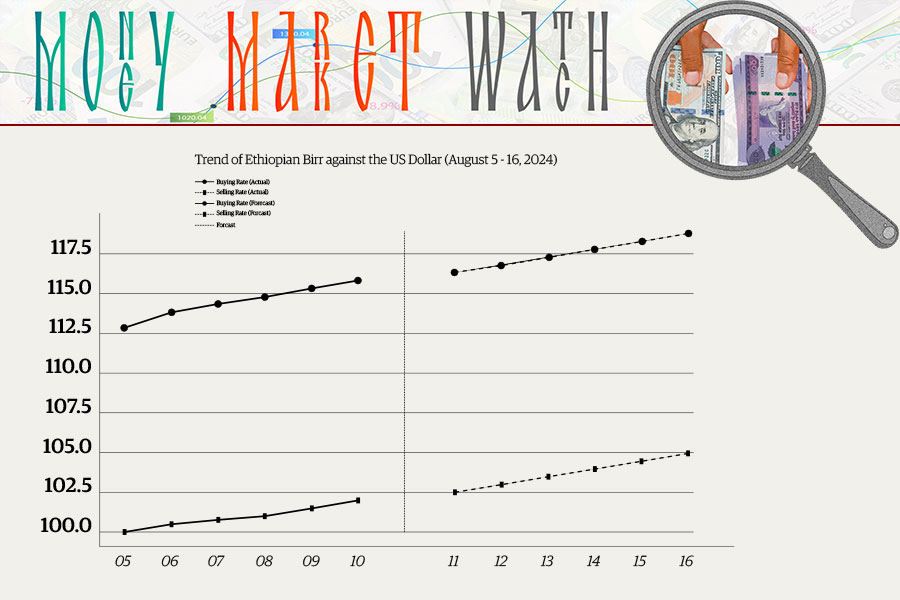
Exclusive Interviews | Aug 03,2025
Ethiopian Immigration & Citizenship Service (ICS) is gearing up to introduce electronic passports (e-passports) within the next six months, aiming to reduce reliance on foreign currency. It will feature microchip-embedded biometrics to bolster security and combat identity theft.
Selamawit Dawit, director general of ICS, has tackled a backlog of passport applications inherited upon taking office and streamlined communication channels to prevent future delays. She said her team is committed to becoming self-sufficient in passport production.
"Gradually, all passports will become electronic," Selamawit told Fortune.
This initiative is part of a joint venture with Toppan Gravity, a subsidiary of the renowned Japanese printing giant Toppan Inc. A major Japanese-based player in the global printing industry with a 124-year legacy and over 10 billion dollars in annual revenue, the Company brings its expertise to the project. The partnership with the government established Toppan Gravity Ethiopia, a joint venture responsible for the e-passport program.
According to Kalkidan Arega, CEO of Toppan Gravity Ethiopia, e-passports will be imported from Toppan subsidiaries worldwide. She said local production will begin after a printing facility is completed at Bole Lemi Industrial Park.
“We’ll manage the entire process,” she told Fortune, “from acquiring materials to printing.”
Some experts have questioned the long-term cost-effectiveness of local production due to the economies of scale required for affordability. Million Kibret, a business consultant and managing partner at BDO Ethiopia, doubts the sustainability due to the vast production required. He believes a thorough breakdown of the local production advantages needs to be considered before exorbitantly investing.
"Extending the expiration date should be considered," Million told Fortune.
ICS was subjected to widespread public criticism over the past few years due to year-long delays in the delivery of passports, poor customer service and allegations of corruption that resulted in 44 employees, including the deputy director, being arrested.
As Selamawit presented the nine-month performance report before the Standing Committee of Legal & Justice Affairs chaired by Etsegenet Mengistu, the e-passport program represented a major step forward.
However, Committee members urged the ICS to address lingering concerns. These include unprofessional conduct by some staff and the presence of intermediaries hindering service delivery.
Selamawit acknowledged inheriting a backlog of 330,000 passport applications. Under her leadership, nearly half a million passports have been distributed in the past nine months, with efforts underway to improve communication and collection rates.
“We had to ask an additional 400 million Br budget from the federal government,” she said.
Officials anticipate a major boost in efficiency with the introduction of e-passports. Local production, expected to begin next year, will enable them to distribute nearly two million passports annually. While local production costs will be seven times higher than current imports of three dollar price, Deputy Director General Bikila Mezgebu emphasises the long-term benefit: "It'll save forex" as payments will be made in local currency.
While acknowledging progress, lawmakers identified areas for improvement. They urged officials to address lingering issues of professionalism and the presence of intermediaries hindering service delivery. Concerns were raised about unprofessional staff conduct, the presence of intermediaries hindering service delivery, and limited service reach requiring citizens to travel long distances.
MPs highlighted the plight of citizens facing travel bans due to mistaken identity caused by incomplete information from legal institutions. Kedija Yassin, an MP from the incumbent party, urged ICS officials to consider raising salaries or introducing new benefits and employment packages to dissuade bribery, stating: "Citizens are paying the price.”
Deputy Director General Gosa Demissie attributed these difficulties to outdated data and pledged to address them.
Chairwoman Etsegent urged the ICS to prioritise technology adoption and expand its reach to improve accessibility.
"Digitisation needs to be adopted throughout," said Etsegenet.
PUBLISHED ON
Apr 28,2024 [ VOL
25 , NO
1252]

Exclusive Interviews | Aug 03,2025

Commentaries | Apr 03,2021

Fortune News | Aug 06,2022

Advertorials | Jan 22,2024

Radar | Nov 16,2024

View From Arada | Sep 03,2022

View From Arada | Jun 14,2025

Money Market Watch | Aug 11,2024

Radar | Jan 01,2023

Radar | Nov 27,2023

Dec 22 , 2024 . By TIZITA SHEWAFERAW
Charged with transforming colossal state-owned enterprises into modern and competitiv...

Aug 18 , 2024 . By AKSAH ITALO
Although predictable Yonas Zerihun's job in the ride-hailing service is not immune to...

Jul 28 , 2024 . By TIZITA SHEWAFERAW
Unhabitual, perhaps too many, Samuel Gebreyohannes, 38, used to occasionally enjoy a couple of beers at breakfast. However, he recently swit...

Jul 13 , 2024 . By AKSAH ITALO
Investors who rely on tractors, trucks, and field vehicles for commuting, transporting commodities, and f...

Nov 1 , 2025
The National Bank of Ethiopia (NBE) issued a statement two weeks ago that appeared to...

Oct 25 , 2025
The regulatory machinery is on overdrive. In only two years, no fewer than 35 new pro...

Oct 18 , 2025
The political establishment, notably the ruling party and its top brass, has become p...

Oct 11 , 2025
Ladislas Farago, a roving Associated Press (AP) correspondent, arrived in Ethiopia in...